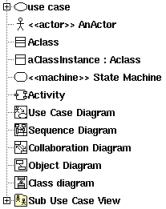
A use case view may contain other use case views, use cases, actors, classes, class instances, activities, state machines, use case diagrams, object diagrams, sequence diagrams, collaboration diagrams and class diagrams in any order :

![]()
The menu appearing with a right mouse click on a use case view in the browser is something like this, supposing it is not read-only nor deleted :
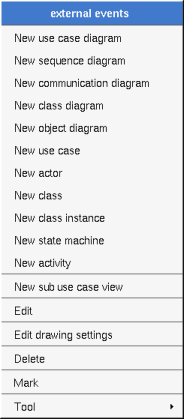
edit allows to show/modify the use case view properties with the following dialog :
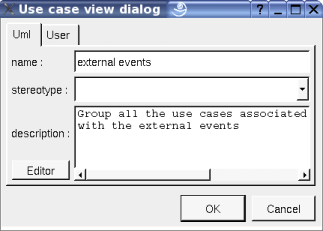
The stereotype of a use case view doesn't have a special meaning for BOUML.
The editor button visible above and associated here to the description, allows to edit the description in an other window, or to call an external editor (for instance Xcoral) specified through the environment dialog. Note that this external editor have to create an own window, its parameter is the pathname of the file containing the description, its execution is done in parallel with BOUML which looks each second at the file contents to get the new definition until the dialog is closed (I do not like very much this polling but this works even QT isn't compiled with the thread support).

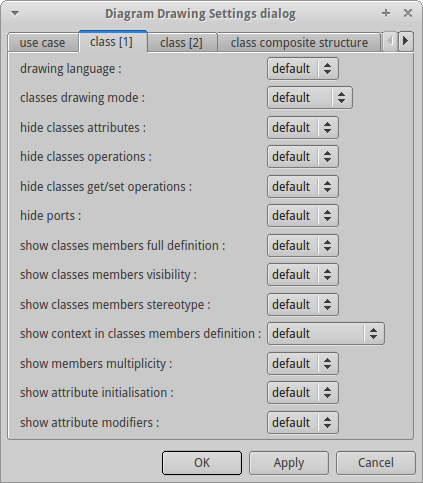
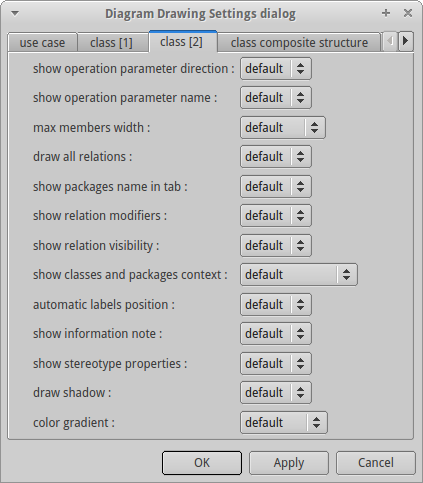
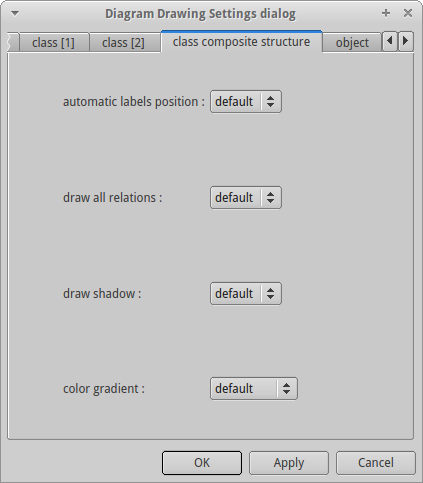
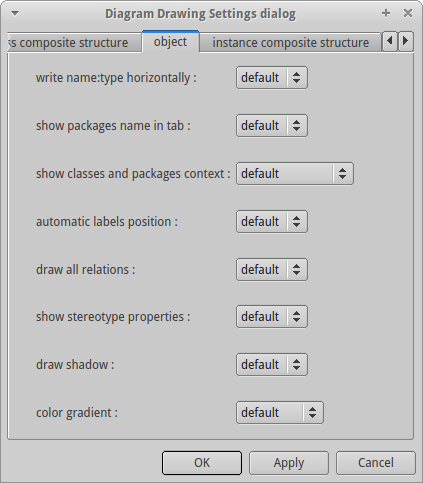
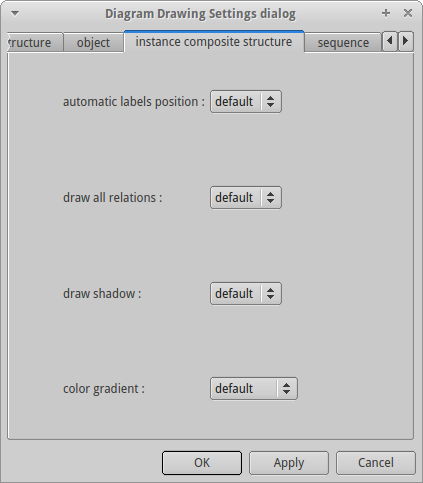
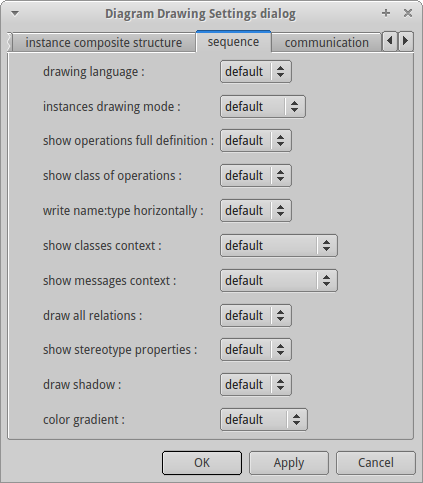
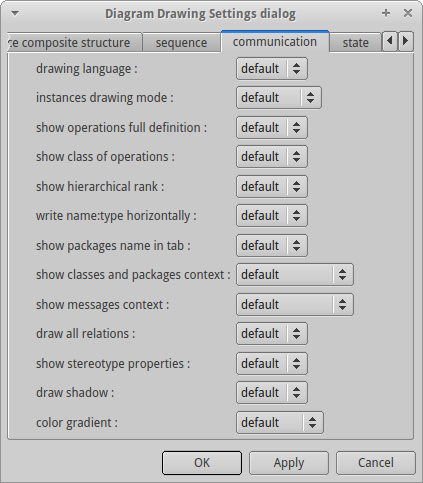
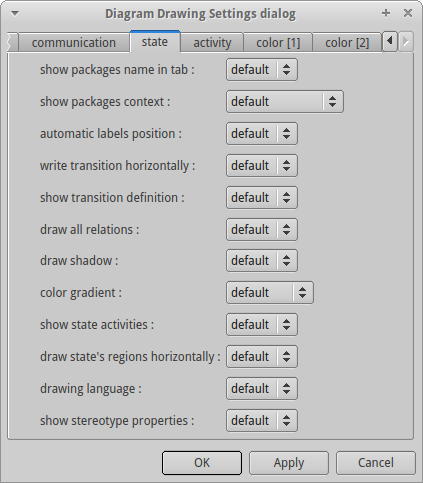
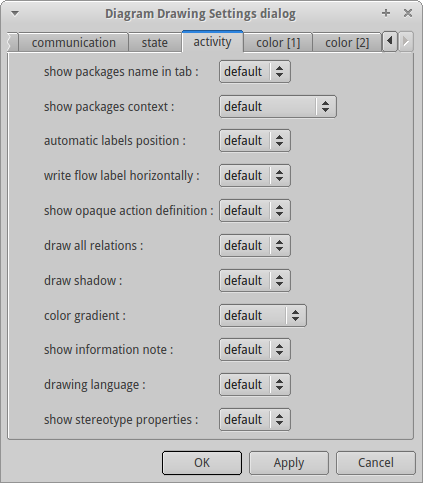
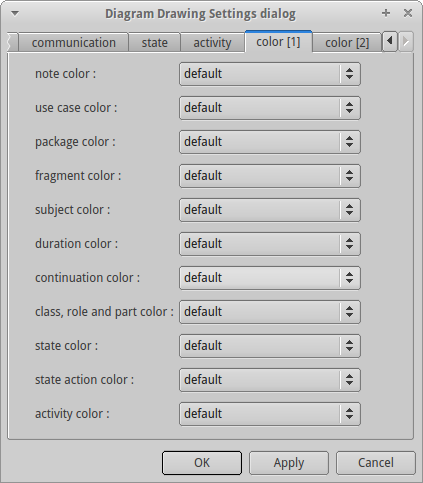
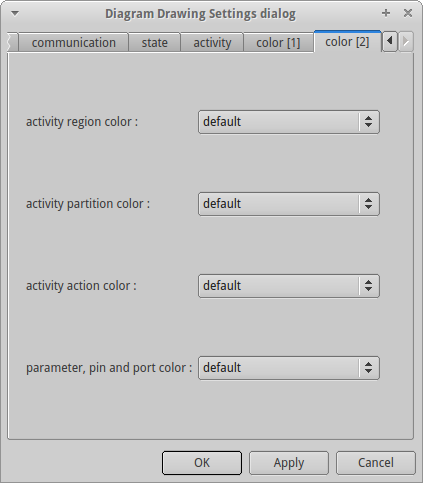
This dialog allows to specify how the sub diagrams must be drawn by default.
The delete entry is only present when the package is not read-only.
Delete the use case view and all its children, and all the representation of them in the opened diagrams. After that it is possible to undelete them (from the browser) until you close the project : obviously the deleted items are not saved !
See mark
The menu entry tool not present above is present in case at least a plug-out may be applied on the use case view.
![]()
Previous : package
Next : class view